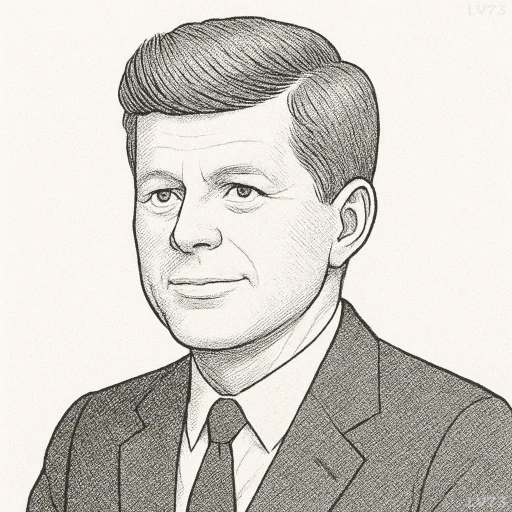“We are not afraid to entrust the American people with unpleasant facts, foreign ideas, alien philosophies, and competitive values. For a nation that is afraid to let its people judge the truth and falsehood in an open market is a nation that is afraid of its people.”

- May 29, 1917 – November 22, 1963
- American
- Politician
table of contents
Quote
“We are not afraid to entrust the American people with unpleasant facts, foreign ideas, alien philosophies, and competitive values. For a nation that is afraid to let its people judge the truth and falsehood in an open market is a nation that is afraid of its people.”
Explanation
In this statement, John F. Kennedy affirms the essential principle of freedom of information and the belief that a healthy democracy relies on an informed citizenry. Kennedy argues that, rather than shielding the American people from uncomfortable or controversial ideas, the government should trust them to make their own judgments about what is true or false. By highlighting “unpleasant facts,” “foreign ideas,” and “alien philosophies,” he points to the challenges posed by global differences, new ways of thinking, and the clash of ideologies—issues that could be seen as threatening or destabilizing. However, Kennedy stresses that open debate and freedom of thought are fundamental to a functioning democracy.
This quote was especially significant during the Cold War, when ideological conflicts between the United States and the Soviet Union were at their height, and American leaders were deeply concerned about the spread of communism and other ideas perceived as antithetical to democracy. In a time of global tension, some leaders might have been tempted to restrict certain ideas or suppress dissent to maintain control. However, Kennedy is making a clear argument for the power of public discourse—that the strength of a nation lies not in its ability to control information, but in its ability to allow its people the freedom to engage with it critically and make their own decisions.
In modern terms, this quote speaks to the importance of freedom of speech, access to diverse viewpoints, and the open exchange of ideas in a democratic society. It also serves as a critique of censorship or the tendency to suppress certain viewpoints in the name of national security or public order. Today, with the rise of social media, misinformation, and polarization, Kennedy’s words remain a powerful reminder that, even when faced with difficult or divisive ideas, a true democracy must embrace open dialogue and trust in the collective judgment of its people. A society that fears the free exchange of ideas is one that ultimately undermines its own strength and freedom.
Would you like to share your impressions or related stories about this quote in the comments section?

